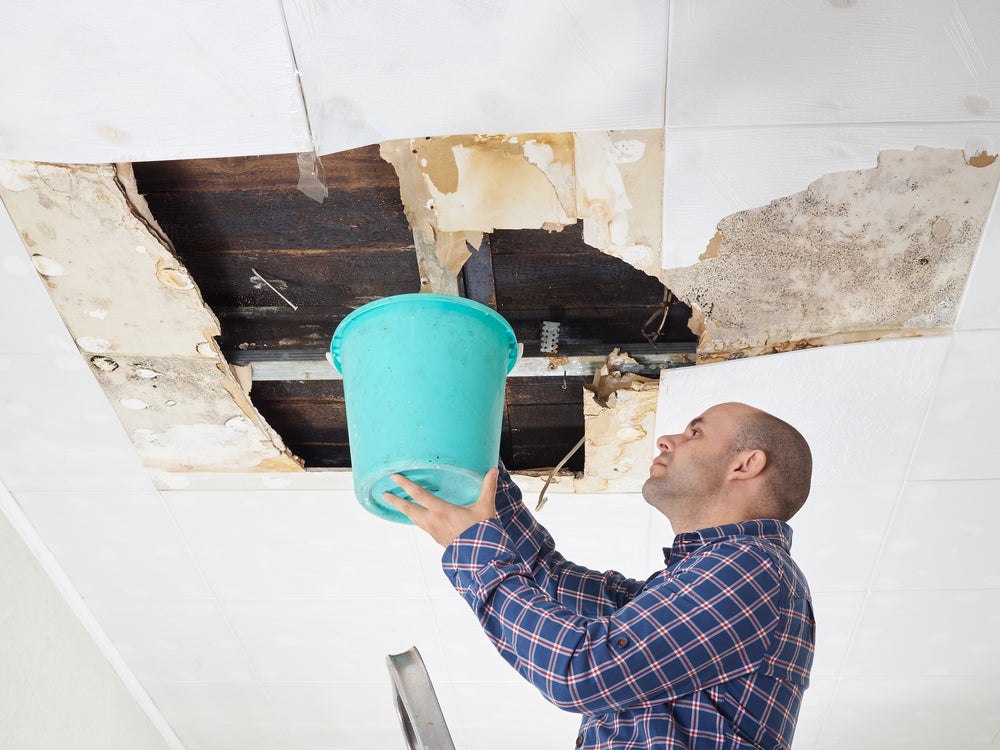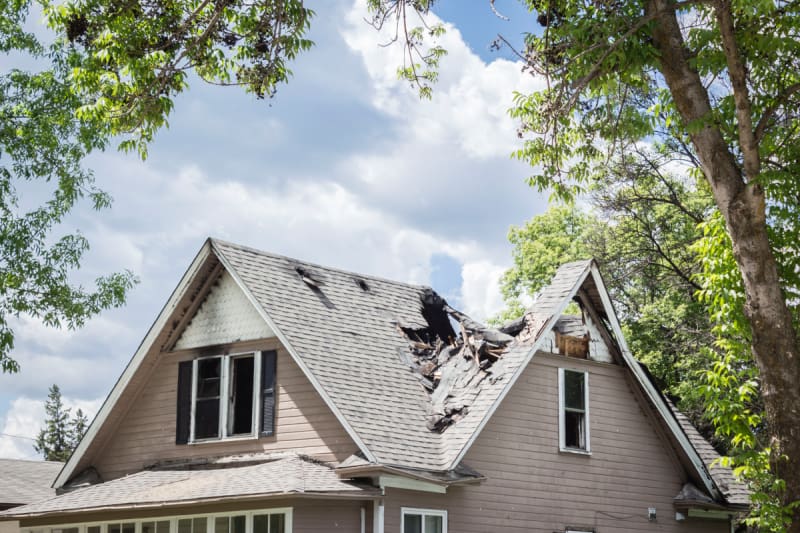Homeowners insurance plays a crucial role in safeguarding your property against unforeseen damages and losses. However, when it comes to roof leaks caused by storms, you may wonder if your insurance policy provides the necessary coverage. In this article, we will explore the depths of homeowners insurance and shed light on whether it protects you against roof leaks resulting from stormy weather. Whether you have recently experienced a roof leak or simply want to be prepared for such an event in the future, understanding the scope of your insurance coverage is essential. Let us demystify this topic and provide you with the knowledge you need to make informed decisions regarding your homeowners insurance.
Understanding Homeowners Insurance
What is homeowners insurance?
Homeowners insurance is a type of insurance policy that provides financial protection to homeowners in the event of damage to their property. It offers coverage for a range of perils, including fire, theft, and natural disasters. Homeowners insurance typically combines coverage for both the physical structure of the home and the belongings inside it. This insurance policy not only provides peace of mind but also ensures that homeowners are financially protected against unforeseen events.
What does homeowners insurance typically cover?
Homeowners insurance typically covers the structure of your home, including the roof, walls, and foundation, in case of damage caused by covered perils. Additionally, it provides coverage for personal belongings, such as furniture, appliances, and clothing, in case of theft, fire, or damage caused by covered perils. Homeowners insurance also includes liability coverage, which protects you if someone is injured on your property and you are found responsible for their injuries.
Coverage for Roof Leaks
Determining the cause of the roof leak
Before understanding the coverage for roof leaks, it is crucial to determine the cause of the leak. Roof leaks can be caused by various factors, such as storm damage, aging materials, or poor installation. Determining the cause of the leak is essential in determining the coverage available under homeowners insurance.
Coverage for roof leaks from storms
Homeowners insurance typically provides coverage for roof leaks caused by storms. Storm-related roof leaks are considered sudden and accidental damages, which are typically covered by homeowners insurance policies. When a storm causes damage to your roof, resulting in a leak, homeowners insurance may cover the repair or replacement costs, subject to the terms and conditions of your policy.
Exclusions related to roof leaks
While homeowners insurance may cover roof leaks caused by storms, there are certain exclusions to be aware of. Pre-existing roof conditions, gradual damage, neglect, and lack of maintenance are generally excluded from coverage. It is essential to review your policy to understand the specific exclusions related to roof leaks.
Filing a claim for roof leaks
If you experience a roof leak, promptly filing a claim with your insurance provider is crucial. Contact your insurance provider as soon as possible and provide them with detailed information regarding the damage. Document the damage by taking photographs and keeping receipts for any temporary repairs you may have made. Obtain estimates and quotes from reputable contractors for the repair or replacement costs. Submit all necessary documentation to your insurance provider and communicate with them throughout the claim settlement process.
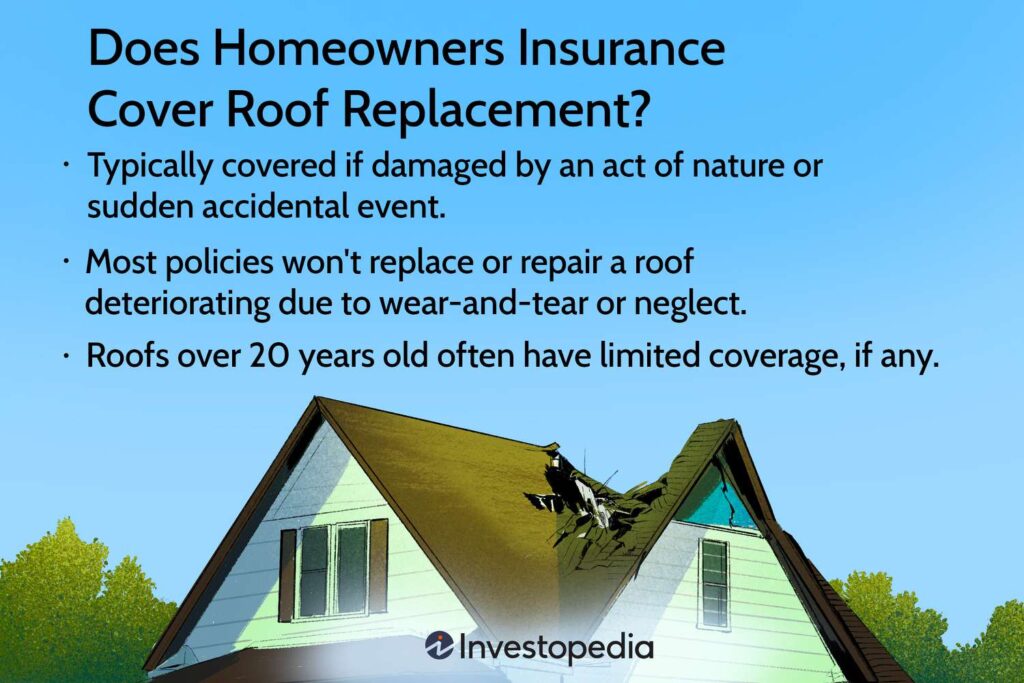
This image is property of www.investopedia.com.
Determining the Cause of the Roof Leak
Initial inspection
When you first notice a roof leak, it is advisable to conduct an initial inspection to determine the apparent cause of the leak. Check for any visible signs of damage, such as missing or damaged shingles, cracked flashing, or clogged gutters. This initial inspection can help you identify potential causes and assist you in understanding whether it may be covered by your homeowners insurance.
Professional assessment
While an initial inspection can be helpful, it is highly recommended to seek a professional assessment to accurately determine the cause of the roof leak. A professional roofing contractor or home inspector will have the expertise and experience to identify hidden or underlying issues that may not be immediately evident. Their assessment will provide a thorough evaluation of the roof’s condition and help establish the cause of the leak.
Identifying storm-related damage
If the roof leak is a result of a storm, it is important to identify and document storm-related damage accurately. This documentation will support your claim with the insurance provider. Look for signs of wind damage, such as missing or uplifted shingles, as well as signs of water penetration, such as stains or discoloration on the ceiling or walls. Be sure to take photographs and keep any relevant documentation provided by the professional assessing the storm-related damage.
Coverage for Roof Leaks from Storms
Perils covered by homeowners insurance
Homeowners insurance typically covers a range of perils, including storms, hail, wind damage, and water damage caused by sudden and accidental events. Storm-related roof leaks fall under these covered perils, making them generally eligible for coverage under homeowners insurance policies. However, it is essential to review your policy to understand the specific coverage terms and conditions.
Wind and storm damage coverage
Most homeowners insurance policies provide coverage for wind and storm damage. If your roof sustains damage due to strong winds or severe storms, resulting in a roof leak, your policy may cover the cost of repairs or even full replacement, subject to the coverage limits and deductibles outlined in your policy. However, it is crucial to review your policy to ensure that wind and storm damage coverage is included.
Water damage coverage
Water damage caused by storms, including roof leaks, is generally covered by homeowners insurance. If a storm causes damage to your roof, leading to water entering your home and causing damage to the interior, such as walls, ceilings, or personal belongings, your policy may cover the necessary repairs or replacements. However, it is important to review your policy for any specific limitations or exclusions related to water damage coverage.
Provisions for roof repairs or replacement
In the event of storm-related roof leaks, homeowners insurance policies may provide provisions for roof repairs or replacement. The extent of coverage will depend on the terms and conditions outlined in your policy, such as coverage limits, deductibles, and the age and condition of your roof. Review your policy carefully to understand the coverage provisions and any applicable limitations for roof repairs or replacement.
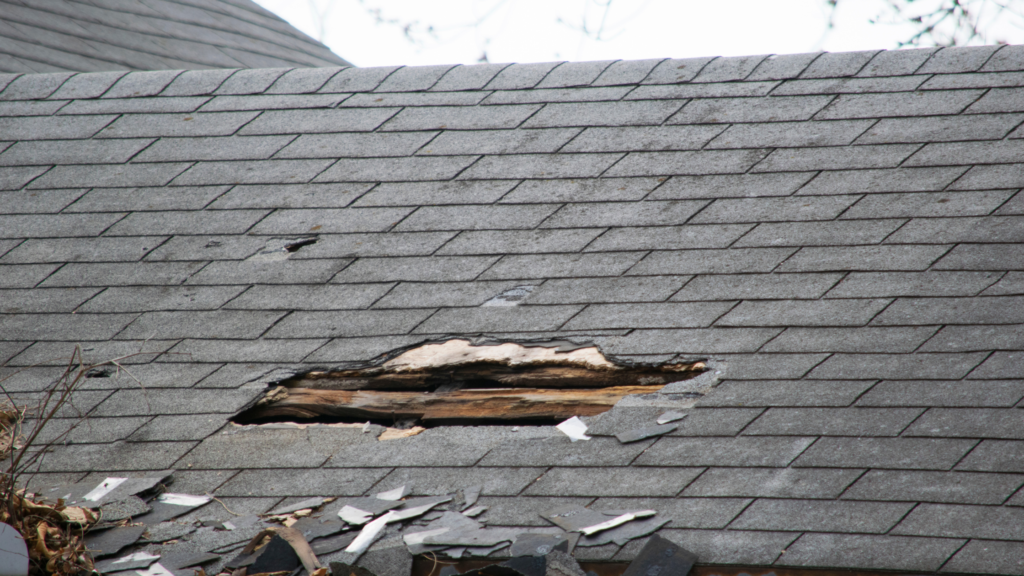
This image is property of performanceadjusting.com.
Exclusions Related to Roof Leaks
Pre-existing roof conditions
Most homeowners insurance policies do not provide coverage for pre-existing roof conditions. If your roof already had damage or issues before the storm, resulting in a leak, it is likely to be excluded from coverage. It is advisable to regularly maintain and inspect your roof to address any pre-existing conditions and reduce the risk of denial of coverage for roof leaks.
Gradual damage
Gradual damage to your roof, such as wear and tear, aging materials, or deterioration over time, is typically excluded from coverage. Homeowners insurance policies are designed to protect against sudden and accidental damages, not gradual wear and tear. It is important to properly maintain your roof and address any aging or deteriorating components to prevent roof leaks caused by gradual damage.
Neglect and lack of maintenance
Failure to properly maintain your roof and address necessary repairs or maintenance can result in the denial of coverage for roof leaks. Homeowners insurance policies require homeowners to take reasonable steps to prevent damage and maintain their property. Neglecting routine maintenance and necessary repairs may be grounds for denial of coverage in the event of a roof leak.
Flood damage exclusions
It is important to note that homeowners insurance does not typically cover flood damage. If your roof leak is a result of flooding, whether caused by heavy rains or natural disasters like hurricanes, it is unlikely to be covered under your homeowners insurance policy. Flood insurance is a separate policy that homeowners may need to consider to protect against flood-related damages.
Filing a Claim for Roof Leaks
Contacting your insurance provider
When you experience a roof leak that you believe is covered by your homeowners insurance, it is important to contact your insurance provider as soon as possible. Be prepared to provide them with detailed information about the damage, including the cause and extent of the leak. Your insurance provider will guide you through the claim process and provide instructions on the necessary steps to take.
Documenting the damage
Documenting the damage is crucial when filing a claim for a roof leak. Take photographs and videos of the affected areas, both from the interior and exterior of your home. These visual records will serve as evidence of the damage and support your claim. In addition to visual documentation, keep records of any temporary repairs made and retain any relevant receipts or invoices.
Obtaining estimates and quotes
To assess the cost of repairs or replacement for the roof leak, it is advisable to obtain estimates and quotes from reputable roofing contractors. Seek multiple estimates to ensure you have a comprehensive understanding of the necessary repairs and associated costs. These estimates will be required by your insurance provider to process your claim and determine the coverage amount.
Submitting the claim
Submit your claim to your insurance provider along with all the necessary documentation, such as photographs, videos, estimates, and any other relevant information. Ensure that you have completed all the required forms accurately and include all the supporting evidence. Filing a complete and well-documented claim will expedite the processing of your claim.
Communication and claim settlement
Throughout the claim process, maintain open and regular communication with your insurance provider. Be responsive to any requests for additional information or documentation. If the claim settlement offered does not meet your expectations or if you have any concerns, communicate with your insurance provider and seek clarification. Understanding the terms of the settlement is essential to ensure a fair resolution to your claim.
This image is property of res.cloudinary.com.
Factors Affecting Coverage
Policy-specific terms and conditions
The coverage for roof leaks in homeowners insurance policies can vary based on the specific terms and conditions outlined in the policy. It is crucial to review your policy thoroughly to understand the coverage limits, deductibles, and any exclusions or limitations related to roof leaks. Familiarize yourself with the policy language to ensure you have the coverage you need.
Deductibles and coverage limits
Homeowners insurance policies often include deductibles and coverage limits that apply to roof repairs or replacement. Deductibles are the amount you must pay out of pocket before the insurance coverage kicks in. Coverage limits, on the other hand, indicate the maximum amount the insurance company will pay for a covered claim. Review your policy to understand the deductibles and coverage limits that may affect the reimbursement for roof leaks.
Age and condition of the roof
The age and condition of your roof can impact the coverage for roof leaks. Older roofs or roofs in poor condition may have limited coverage or face exclusions due to the increased likelihood of leaks and damage. Insurance providers often consider the age and condition of the roof when assessing coverage and may request documentation or inspections to determine eligibility for coverage.
Location and regional weather patterns
The location of your home and the regional weather patterns in your area can also affect coverage for roof leaks. Certain regions are more prone to severe weather conditions, such as hurricanes or heavy rainfall, which can result in increased premiums or policy limitations. Discuss with your insurance provider how the location and regional weather patterns may impact coverage for roof leaks and seek appropriate coverage based on your needs.
Preventive Measures and Maintenance
Proactive roof maintenance
Regular and proactive maintenance of your roof is essential to prevent roof leaks. Conduct routine inspections, especially after severe weather events, to identify and address any damage promptly. Clean out gutters and downspouts to ensure proper drainage, as clogged gutters can lead to water backing up and seeping into the roof. Trim any overhanging tree branches that may pose a risk to the roof during storms.
Regular inspections
Schedule regular inspections by a professional roofing contractor to assess the condition of your roof. These inspections can help identify potential issues, such as deteriorating materials or damaged flashing, before they result in a roof leak. A professional inspection provides an opportunity to address minor repairs and maintenance tasks to extend the life of your roof and mitigate the risk of leaks.
Prompt repairs
If you notice any signs of roof damage or a potential leak, it is crucial to address it promptly. Ignoring or delaying necessary repairs can worsen the damage and increase the likelihood of a roof leak. Whether it’s replacing missing or damaged shingles, fixing cracked flashing, or repairing any other issues identified during an inspection, addressing repairs promptly can prevent a small problem from becoming a larger and costlier one.
Upgrading your roof
Consider upgrading your roof to a more durable and weather-resistant material. While it may require a significant investment upfront, a new roof made of high-quality materials can provide added protection against storm damage and minimize the risk of leaks. Some homeowners insurance policies may offer discounts or lower premiums for certain types of roofing materials, so check with your insurance provider to explore your options.
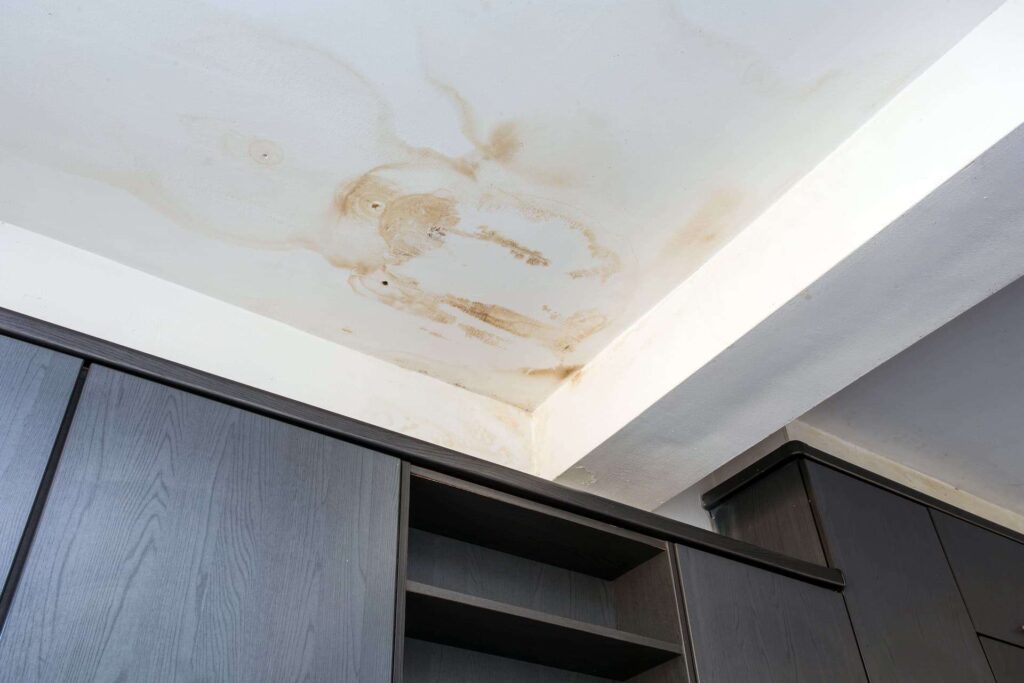
This image is property of roofclaim.com.
Comprehensive Coverage Options
Considerations for full replacement cost coverage
Full replacement cost coverage is an option to consider if you want to ensure that your roof is covered for its entire replacement cost, regardless of depreciation. This coverage option is especially beneficial for newer roofs and can provide the peace of mind of knowing that you won’t be responsible for significant out-of-pocket expenses when replacing your roof. Discuss with your insurance provider if full replacement cost coverage is available and suitable for your needs.
Supplemental insurance options for enhanced coverage
In addition to traditional homeowners insurance, there may be supplemental insurance options available to enhance coverage for roof leaks. These supplemental options, such as extended replacement cost coverage or specific endorsements for roof damage, provide additional protection beyond the standard homeowners insurance policy. Consider discussing these options with your insurance provider to tailor your coverage to your specific needs.
Final Thoughts
Reviewing your policy
Regularly review your homeowners insurance policy to understand the specific coverage and any updates or changes to the terms and conditions. Pay close attention to the sections related to roof leaks and ensure you have the coverage you need to protect against potential damage and repair costs. If you have any questions or concerns, reach out to your insurance provider for clarification or guidance.
Seeking professional advice
If you are unsure about the coverage for roof leaks in your homeowners insurance policy, seek professional advice from an insurance agent or broker. They can provide comprehensive information about your policy and help you understand the extent of coverage for roof leaks. A professional can also guide you in identifying any gaps in coverage and recommend additional insurance options to address your specific needs.
Mitigating risks through proactive measures
While homeowners insurance provides essential coverage for roof leaks, it is important to take proactive measures to mitigate risks. Regular maintenance, prompt repairs, and periodic roof inspections can help prevent roof leaks and minimize potential damage. By investing time and effort in proactive measures, you can reduce the likelihood of experiencing a roof leak and maximize the benefits of your homeowners insurance coverage.
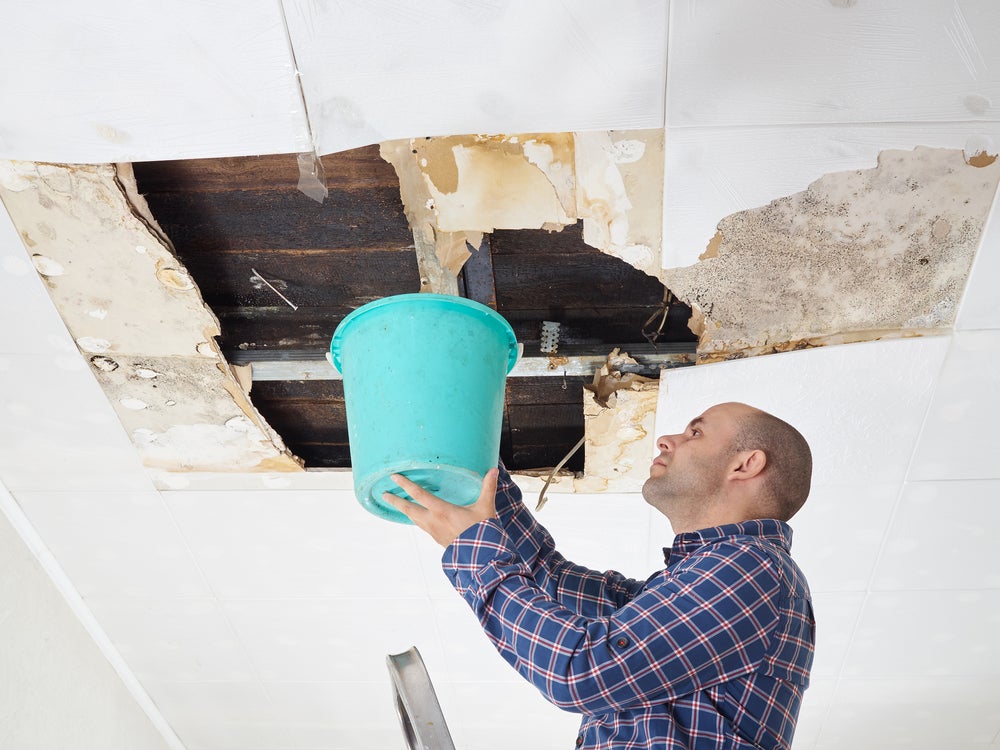
This image is property of empire-s3-production.bobvila.com.
